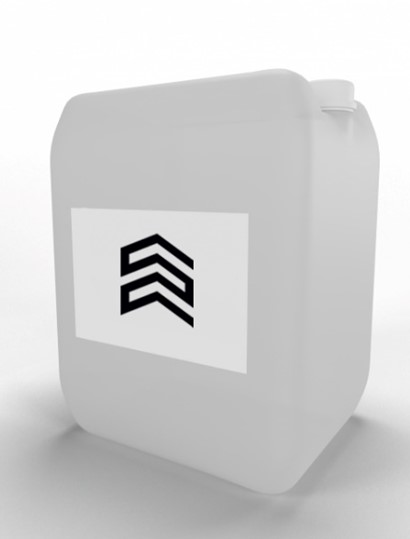EU bans affect €900m trade in oilcake and chemicals with Russia

Last week, the European Union introduced the sixth package of sanctions against Russia, the central elements of which are an embargo on the import of Russian oil (with a ban on insurance of the worldwide shipping of Russian fuel by European operators), sanctions against the National Settlement Depository, KamAZ and a number of other Russian companies, a ban on the provision of business services by Europeans (except for legal ones).
However, the package included several less noticeable amendments regarding a ban on the import of chemicals into Russia and the supply of alcoholic beverages and plant waste from Russia. RBC understood what volumes of trade they affected.
Formal ban on Russian vodka
In April, as part of the fifth sanctions package, the European Union banned the import of alcohol from Russia. The European Commission said in a press release that the sanctions package includes a ban on the import of Russian goods such as "timber, cement, fertilizers, seafood and spirits." However, for some reason, alcoholic beverages were not then added to the list of prohibited deliveries from Russia (RBC sent a request to the European Commission). Formally, this means that Russian vodka could be imported into the EU countries before the beginning of June: strong alcohol has already entered the sixth package.
The EU has imposed a package of sanctions against Russia with an oil embargo. What's Included Economics
In 2021, the EU countries imported alcoholic beverages from Russia (code 2208 of the commodity nomenclature of foreign economic activity) in the amount of €80.3 million. This is mainly vodka - €78.1 million. Germany bought the most Russian vodka (€34.2 million) , follows from Eurostat data studied by RBC. In the first quarter of 2022, the EU imported about €19 million worth of vodka from Russia, but data for April is not yet available (the fifth package was introduced on April 8, the sixth on June 3).
Leftover beets
Europe has imposed an oil embargo. What will happen to LUKOIL shares Forecasts Pro Digitalization for aksakals:In addition, on June 3, the EU added to the list of goods prohibited for import from Russia “residues from the production of starch and similar residues, beet pulp, bagasse, or SUGAR cane pulp, and other waste from the production of sugar, bard and other waste from brewing or distilling, not granulated or granulated" (code 2303). The establishment of this list, which also includes caviar, rubber, silver, glass, etc., was explained by the fact that these goods "generate significant income for Russia, thus allowing it to carry out actions that destabilize the situation in Ukraine."
Vegetable waste, which the European Union banned from Russia, generated even higher EXPORT earnings than vodka. According to Eurostat, in 2021, the EU countries purchased this waste from Russia for €161.3 million. In the first quarter of 2022 - for €68 million. In March, the import of these products accelerated significantly - up to €31.5 million (compared to monthly average of €13.4 million in 2021).
Nearly 98% of European imports from Russia under this heading are "beet pulp, bagasse, or sugarcane pulp, and other by-products of sugar production." The pulp is used to add to animal feed, especially cattle. “Every year, the production of beet sugar generates tens of millions of tons of waste. Basically it's pulp. After drying and granulation, it becomes a valuable feed for livestock and pigs, comparable in nutritional value to concentrated feed,” wrote Agroinvestor magazine. In 2021, 41.2 million tons of sugar beets were harvested in Russia (21.5% more than in 2020), Rosstat reported.
Other wastes of sugar production classified under this heading include defecation mud, filter press sludge, etc., follows from the explanations to the FEACN of the Eurasian Economic Commission (.pdf).
€660 million chemicals ban
In addition to additional restrictions on imports into the union, the EU has also expanded bans on supplies to Russia. About 80 chemicals have been added to the list of dual-use goods and technologies prohibited from being supplied to Russia, which can be used to produce chemical weapons. As explained by the European Commission, this list stems from the decision of the Australian Multilateral Export Control Group, which regulates the supply of chemical precursors and related equipment, and is known as the "Syrian watch list" (in 2013, chemical weapons were used in Syria, which was confirmed by the UN and the Organization for the prohibition of chemical weapons).
New sanctions: what share of Russia's foreign trade was subject to restrictions Economics
The European Commission estimates that exports of these chemicals to Russia in 2021 amounted to €663 million. But the EU notes that these products can continue to be exported to Russia under existing exemptions for non-military users (for example, for humanitarian, pharmaceutical, medical purposes).
It follows from the decision of the European Commission that dual-use technologies banned for Russia now include fentanyl and its derivatives (alfentanil, sufentanil, etc.), with the exception of fentanyl for civilian consumption (narcotic analgesic, used in medicine for anesthesia and as an anesthetic) . Also on this list are now arsenic, antimony, calcium carbide, ethanol, white and yellow phosphorus, chemical precursors for nerve agents, continuous flow reactors (can be used to synthesize toxic substances).
With the expansion of export controls against Russia, the total amount of European supplies to Russia affected by sanctions reaches €23.5 billion, or more than 26% of all European supplies to Russia (based on 2021 figures), as well as the import of goods into the EU from Russia ( after the embargo on the import of oil and oil products comes into force) - at the level of €81 billion, or about 50% of all European imports from Russia, follows from the data of the European Commission and RBC calculations.
Dietary supplements and vitamins in EAPTEKE. Fast shipping. Medicines at competitive prices. Discounts and promotions. Vitamins for all occasions. Order on the site!Read together with it:
- An HSE expert reported on the "evolution of inequality" in access to healthcare.An HSE researcher analyzed Russians' access to healthcare over a ten-year period. In 2021, the influence of financial factors became noticeable for the first time: low income reduces the likelihood of visiting a DOCTOR.Over the ten years from 2011 to 2021, the number of Russians requiring medical care but not receiving it remained virtually unchanged, according to a study by Lyudmila Zasimova, hea...
- The IEA sees a risk of a decline in oil production in Russia due to sanctions.The IEA sees a risk of reduced oil production in RUSSIA due to US sanctions , but maintains its production forecast. According to the IEA, Russian oil exports will remain unchanged.There is a "significant downside risk" to Russia's oil production forecast due to US sanctions, the International Energy Agency (IEA) said in a report.BLOOMBERG . The agency's experts believe that the latest US sanction...
- UniCredit заявил о галактических усилиях из-за санкций против РоссииUniCredit старается не нарушить «более 15 тыс. санкций», а также не «совершать ошибки», которые позволят изъять его активы в России, заявил гендиректор. После начала военной операции банк начал рассматривать возможность ухода Итальянский банк UniCredit прилагает «галактические усилия», пытаясь соблюсти международные санкции в отношении своего российского подразделения. Об этом заявил генеральный д...
- "Коллективы АПК способны решать любые задачи даже в непростых условиях". Назаров о заслугах сельхозпроизводителейЮрий Назаров 13 ноября, Минск. Обеспечение продовольственной безопасности страны - большое достижение трудовых коллективов аграриев, отметил управляющий делами Президента Республики Беларусь Юрий Назаров на торжественной церемонии награждения государственными и иными наградами работников АПК Управления делами Президента Республики Беларусь, передает корреспондент БЕЛТА. Торжественная церемония наг...
- He crawled to the icon with prayer. The true story of a man who overcame drug addiction.Alexander Ovchinnikov. Topic News. Our project's hero was a drug addict for many years. The thought that this was a dead end never left him, but his addiction proved stronger. One day, when he could no longer walk, he crawled to an icon in prayer. This became his first step toward a new life. Today, he heads a charity center that helps those who have given up hope and are unable to quit ALCOHOL an...
- Sustainable growth of the food and processing industries in BashkortostanIlshat Fazrakhmanov, Deputy Prime Minister andThe regional Minister of Agriculture noted that the development of these industries provides the population with essential food products and contributes to increased exports. Since 2020, agricultural exports from the region have doubled. Since the beginning of 2......
- В Тульской области уничтожили 24 кг санкционных сыров и мясных продуктов из ЕвропыВо время совместной проверки с транспортной прокуратурой из оборота было изъято 24,45 кг сыров и мясных изделий, произведенных в таких странах, как Дания, Испания, Норвегия, Италия, Ирландия и Франция. Ввоз данной продукции на территорию России запрещен в соответствии с указом Президента, касающимся специальных экономических мер. Изъятая продукция была ликвидирована путем измельчения и денатурации...
- Rosselkhoznadzor has banned meat imports from two Belarusian enterprises due to violations.In addition, three other Belarusian producers are now subject to strict laboratory monitoring due to initial deviations: azithromycin was found in poultry MEAT from Druzhba Poultry Farm, and the pesticide imidacloprid was found in honey from Pchalyar Polachchyny Farm. Powdered MILK from Luninetsky Dairy Plant was also found to containcoli bacteria . These measures were taken at the request of the ...




























































